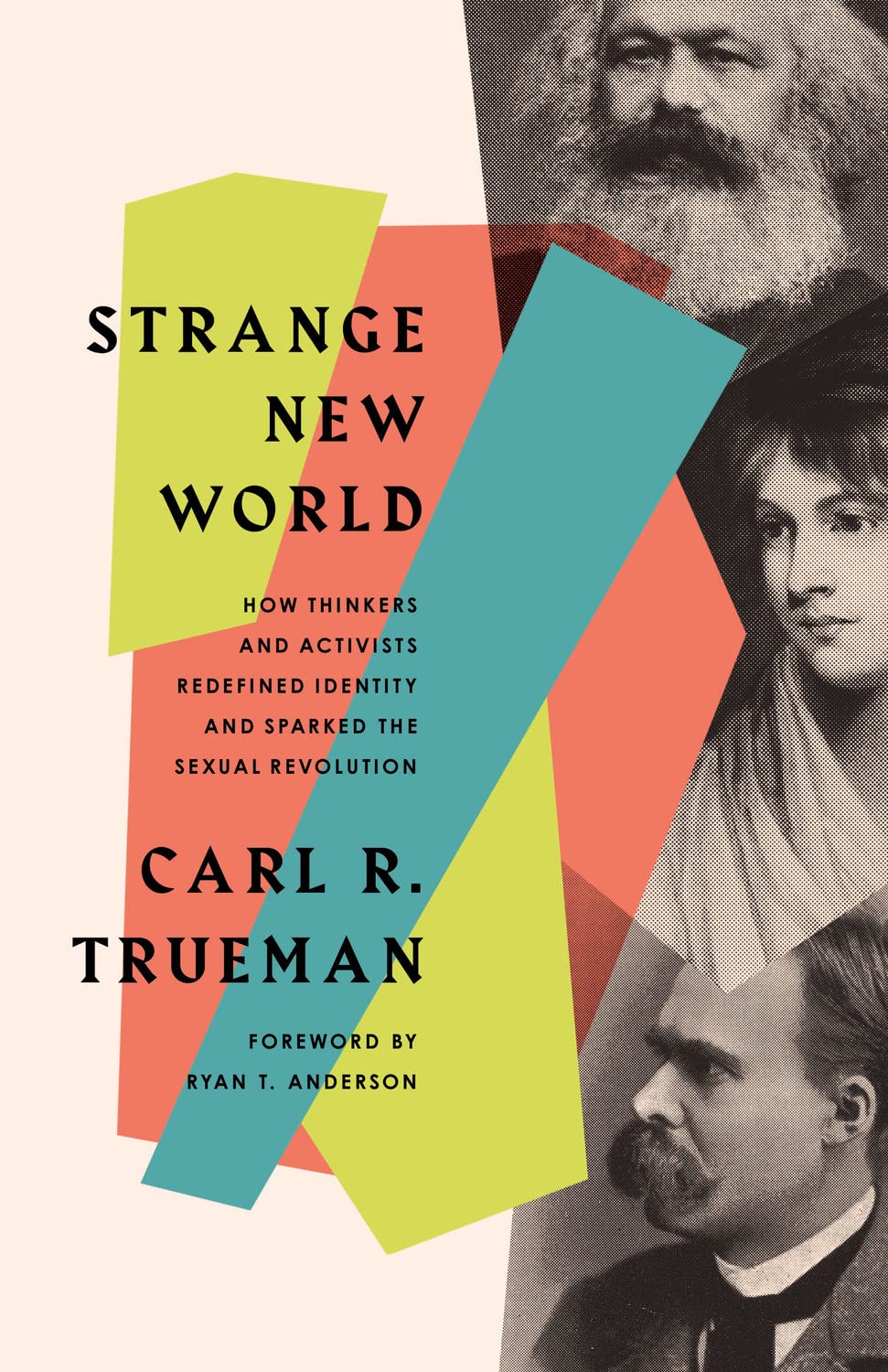
Language: English
Paperback: 208 pages
ISBN-10: 1433579308
ISBN-13: 978-1433579301
Item Weight: 8.8 ounces
Dimensions: 5.5 x 0.53 x 8.5 inches
Is Sex an Identity?
How did the world arrive at its current, disorienting state of identity politics, and how should the church respond? Influences ranging from traditional institutions to technology and pornography moved modern culture toward an era of “expressive individualism.” The book started by Investigating philosophies from the Romantics, Nietzsche, Marx, Wilde, Freud, and the New Left, outlining the history of Western thought to the distinctly sexual direction of present-day identity politics and explains the modern implications of these ideas on religion, free speech, and personal identity.
The Rise and Triumph of the Modern Self, Strange New World offers a more concise presentation and application of some of the most critical topics of our day. Individuals and groups can work through the book together with the Strange New World Study Guide and Strange New World Video Study.
- Cultural Analysis from a Christian Perspective: Explores the history of the sexual revolution and its influence today
- A Concise Version of The Rise and Triumph of the Modern Self: Offers an approachable presentation of the points in Trueman’s popular book
- A Great Resource for Individual and Small-Group Study: Each chapter ends with thought-provoking application questions
- Part of the Strange New World Suite: Can be used with the Strange New World Video Study and Strange New World Study
In large part, this question is to be laid at the feet of Sigmund Freud, the late nineteenth to early twentieth century psychoanalyst who argued that who we are at the most fundamental level is our sexual desires. And, of course, once you start arguing that our fundamental identity is our sexual desires, then two things happen.
One thing that happens is that sex ceases to be an activity and moves towards being an identity. If you look at the Bible or at ancient Greece, there’s plenty of sex, but it’s always an activity. Sometimes that activity is considered legitimate, sometimes illegitimate, but it’s an activity, not an identity.
Carl Trueman identifies the historical, philosophical, and technological influences that have shaped present-day identity politics and teaches believers how to shift their modern understanding of personhood to a biblical perspective.
Once you make the move that says the person you really are is determined by your sexual desire, then sex ceases to be an idea or an activity and it becomes an identity such that if I were to say to you, “I’m gay,” I’m not even claiming to have had a sexual experience. I’m defining myself purely in terms of a psychological erotic desire which I experience or have.
Now, think about that. Once identity is sexual, once your sexual desires are your identity, it’s inevitable that sex is going to become political, because laws governing sex become not so much rules and laws about behavior as they become about who you are allowed to be.
Once identity is sexual, once your sexual desires are your identity, it’s inevitable that sex is going to become political.
A law that forbids a certain kind of sexual activity or the manifestation of a certain kind of sexual desire is a law that forbids that kind of person. And that’s why once sex becomes identity, sex must also become politicized, because identities are inevitably political.
So, the identities that society recognizes and the identities that society refuses to recognize define the policies, define what society is, and are, in other words, profoundly political.



